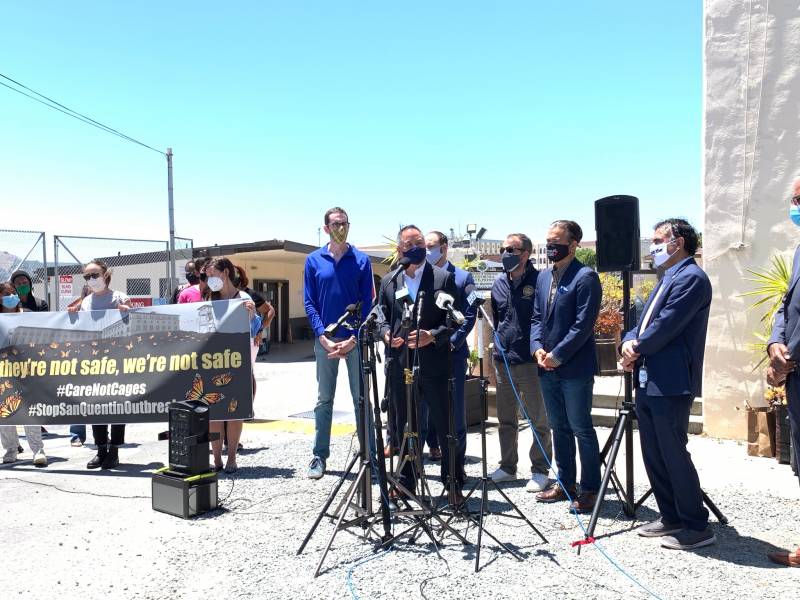KQED: I guess what I was getting at is that, you know, the governor is doing some reductions of the population there, wants to get it down to below 100% capacity. But, you know, the advocates and these folks that are calling for more drastic, you know, more aggressive action, I guess. Do you think it needs to be more aggressive than what the governor is doing?
JH: I'm not ready to second guess the governor in this regard. These are very tough decisions. I mean, it's a balancing in every respect. And it's not as simple as just terminating sentences, especially in situations where people may be going to communities that aren't ready to receive them. We may not have the programs and the capacity to do a good job helping them re-enter society. So, in the middle of a pandemic, that becomes even more complicated. I'm just not ready to second guess the governor, I think, on that point.
KQED: What are you hearing from your constituents about this crisis? I mean, have they been reaching out to your office at all?
JH: Oh, yeah. I mean, when the numbers started to become known, there was an immediate sense of alarm, especially in Marin County, because, you know, our numbers are going up even without San Quentin. We have the highest per capita coronavirus spread in the Bay Area.
And so to think about this encroaching on our hospital capacity, our ICU capacity, our ambulance capacity, and there was a lot of alarm and it looked like it was on track to do that. So I'm very grateful that Cal OES. and others have really taken a bold response in the last few days to make sure that that doesn't happen.
KQED: Following up on that. Marin has made a concerted effort to distance itself from the case numbers in the prison. Do you think what's happening inside San Quentin should be considered a county issue or county problem?
JH: It's a state problem. There's no doubt about it. I mean, Marin public health authorities have limited ability to either prevent or to resolve a crisis like this is taking place inside a prison like San Quentin. So, you know, I think they've been working closely together. I know that our Marin County public health director has been onsite at San Quentin, like, almost every day for the last week or more. And that's appropriate. But no, this really needs to be a state issue resolved by state authorities. And you can't put the whole burden of a fix on this on Marin County.

